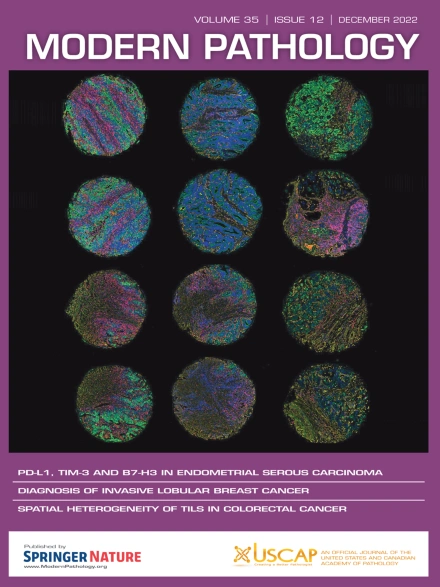Future of Artificial Intelligence—Machine Learning Trends in Pathology and Medicine
IF 7.1
1区 医学
Q1 PATHOLOGY
引用次数: 0
Abstract
Artificial intelligence (AI) and machine learning (ML) are transforming the field of medicine. Health care organizations are now starting to establish management strategies for integrating such platforms (AI-ML toolsets) that leverage the computational power of advanced algorithms to analyze data and to provide better insights that ultimately translate to enhanced clinical decision-making and improved patient outcomes. Emerging AI-ML platforms and trends in pathology and medicine are reshaping the field by offering innovative solutions to enhance diagnostic accuracy, operational workflows, clinical decision support, and clinical outcomes. These tools are also increasingly valuable in pathology research in which they contribute to automated image analysis, biomarker discovery, drug development, clinical trials, and productive analytics. Other related trends include the adoption of ML operations for managing models in clinical settings, the application of multimodal and multiagent AI to utilize diverse data sources, expedited translational research, and virtualized education for training and simulation. As the final chapter of our AI educational series, this review article delves into the current adoption, future directions, and transformative potential of AI-ML platforms in pathology and medicine, discussing their applications, benefits, challenges, and future perspectives.
求助全文
约1分钟内获得全文
求助全文
来源期刊

Modern Pathology
医学-病理学
CiteScore
14.30
自引率
2.70%
发文量
174
审稿时长
18 days
期刊介绍:
Modern Pathology, an international journal under the ownership of The United States & Canadian Academy of Pathology (USCAP), serves as an authoritative platform for publishing top-tier clinical and translational research studies in pathology.
Original manuscripts are the primary focus of Modern Pathology, complemented by impactful editorials, reviews, and practice guidelines covering all facets of precision diagnostics in human pathology. The journal's scope includes advancements in molecular diagnostics and genomic classifications of diseases, breakthroughs in immune-oncology, computational science, applied bioinformatics, and digital pathology.
 求助内容:
求助内容: 应助结果提醒方式:
应助结果提醒方式:


